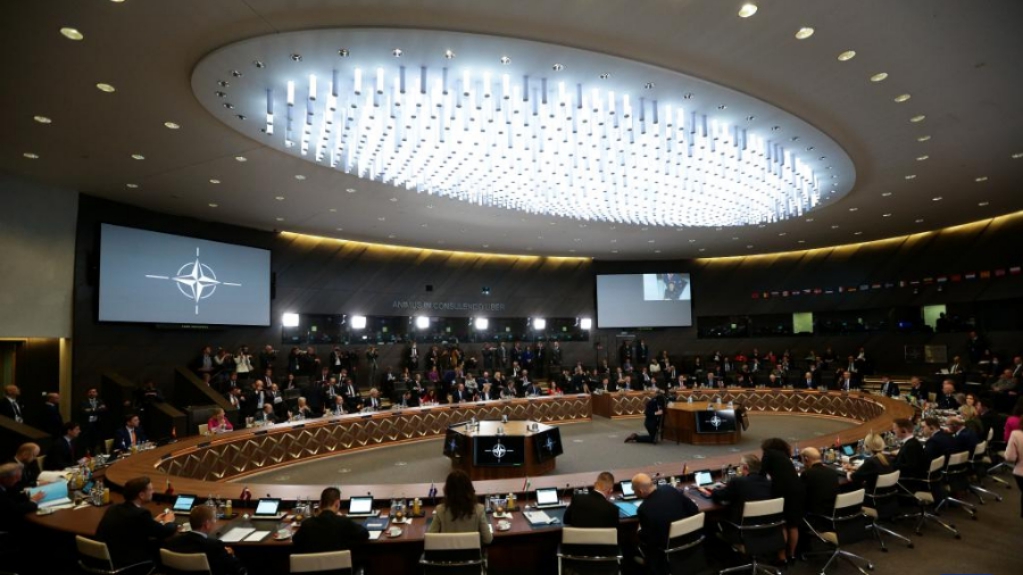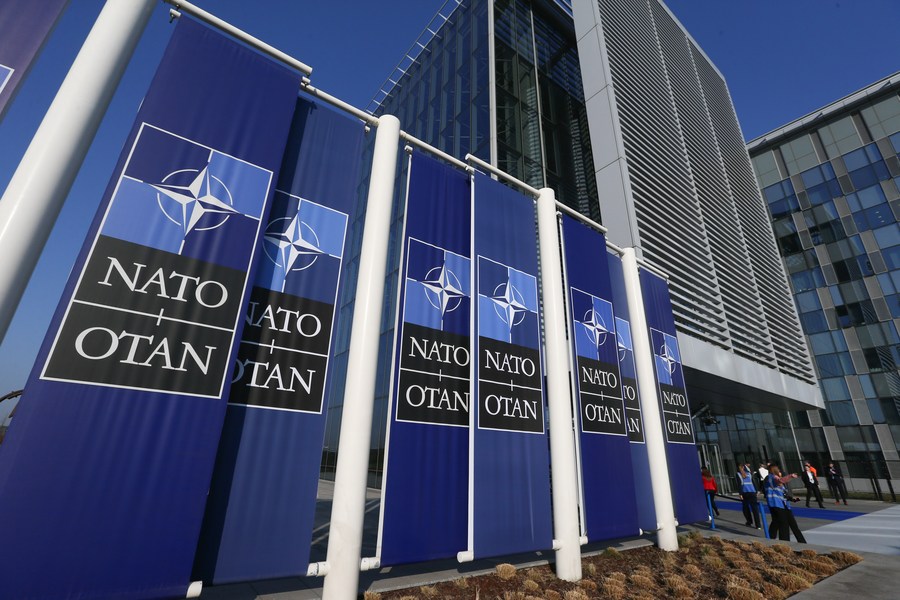
The NATO headquarters in Brussels, Belgium, April 7, 2022. /Xinhua
The NATO headquarters in Brussels, Belgium, April 7, 2022. /Xinhua
Editor's note: Sun Chenghao is a research fellow at the Center for International Security and Strategy, Tsinghua University. The article reflects the author's opinions and not necessarily those of CGTN.
NATO recently branded China as a so-called serious challenge to the military organization by groundlessly accusing China of "its failure to condemn Russia" against the backdrop of the Russia-Ukraine conflict. The NATO Secretary-General Jens Stoltenberg said the attendance of Asia Pacific partners was important "because the crisis has global ramifications."
It is not the first time that NATO has targeted China. NATO's potential pivot to China started as early as December 2019, when the NATO summit in London mentioned China for the first time in its declaration, claiming that "China's growing influence and international policies present both opportunities and challenges that we need to address together as an Alliance."
However, targeting China during the current Ukraine crisis is not a wise way to rally its members or pacify outsiders who believe NATO is purely a Cold War remnant that leads to instability rather than peace.
But can NATO deftly balance Europe and Indo-Pacific theaters? Even NATO's largest military power, the U.S., could hardly strike a balance.
It seems that the U.S. does not believe the Russia-Ukraine crisis can fundamentally change the dynamics of the U.S. strategic shift toward the Indo-Pacific. The crisis has more impact on Europe than on America. The U.S. has even alienated the Europe-Russia relations and is in a more favorable strategic position in the trilateral relations.
Yet the Russia-Ukraine conflict has distracted the strategic energy of the U.S. on multiple levels. Focusing on the Indo-Pacific as previously planned has become an impossible task, and the "two-ocean strategy" of deeply intervening in the Atlantic and the Indo-Pacific at the same time is just the U.S. policy designers' rosy vision.
After the Russia-Ukraine conflict, the U.S. will face a Europe in greater need of support and help, and the strategic mismatch of the U.S. and NATO's European allies on the Indo-Pacific will become more prominent. For some time, Europe will focus more on internal affairs, which will not only make it difficult to follow America's ambitious great power competition in the Indo-Pacific but also require the U.S. to put the overall interests of Europe first.
Even if the crisis ends, some issues will haunt Europe. In the security field, Russia is a neighbor that Europe cannot change, and the voice of security autonomy within Europe will become fiercer. Should Europe's security be enhanced under the framework of NATO or the EU? Will it push for a European defense alliance of its own, or will it rely more on the U.S. for security?

Staff members work at the NATO Headquarters in Brussels, Belgium, March 24, 2022. /Xinhua
Staff members work at the NATO Headquarters in Brussels, Belgium, March 24, 2022. /Xinhua
It is true that the U.S. holds greater sway over Europe in military security after the Ukraine crisis. Europe finds that it still needs to face traditional security issues of "war and peace" and remains highly dependent on the U.S. for security protection.
Under such circumstances, NATO, led by the U.S., has become a necessity for European security, and the U.S. will continue to dominate the future direction of NATO's transformation and the goal of great power competition, giving rise to the decline of Europe's autonomy in security.
Meanwhile, the Russia-Ukraine crisis has further amplified the existing differences between the U.S. and Europe on China. Europe and the U.S. are currently facing a very complex misconception of security issues.
Europe regards Russia as the most urgent threat and believes that Russia can still provoke a "new Cold War." Meanwhile, the U.S. regards China as the most critical challenge facing the West and is more likely to fall into a "Thucydides Trap" with China. The structural contradictions between the U.S. and Europe on China-Russia issues cannot be resolved, which will determine the direction of the transatlantic security coordination on China.
Most importantly, the U.S. or NATO's attempt to hedge China is not welcomed by countries in the Asia-Pacific. Economic globalization has made the world industrial chain closely linked. No country is willing to take sides between China and the U.S. or engage in the great power competition, making them tools of the U.S. strategic rivalry.
(If you want to contribute and have specific expertise, please contact us at opinions@cgtn.com. Follow @thouse_opinions on Twitter to discover the latest commentaries in the CGTN Opinion section.)

